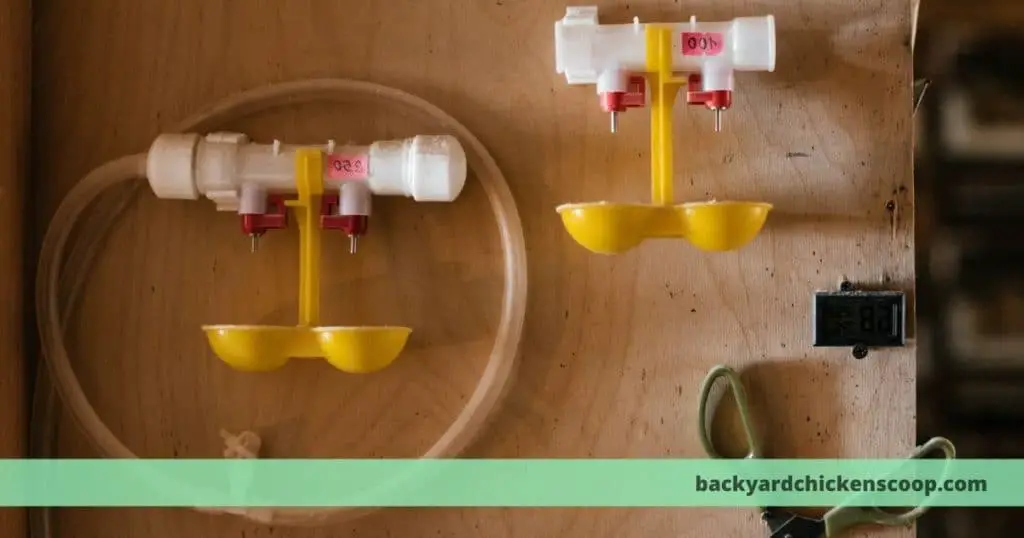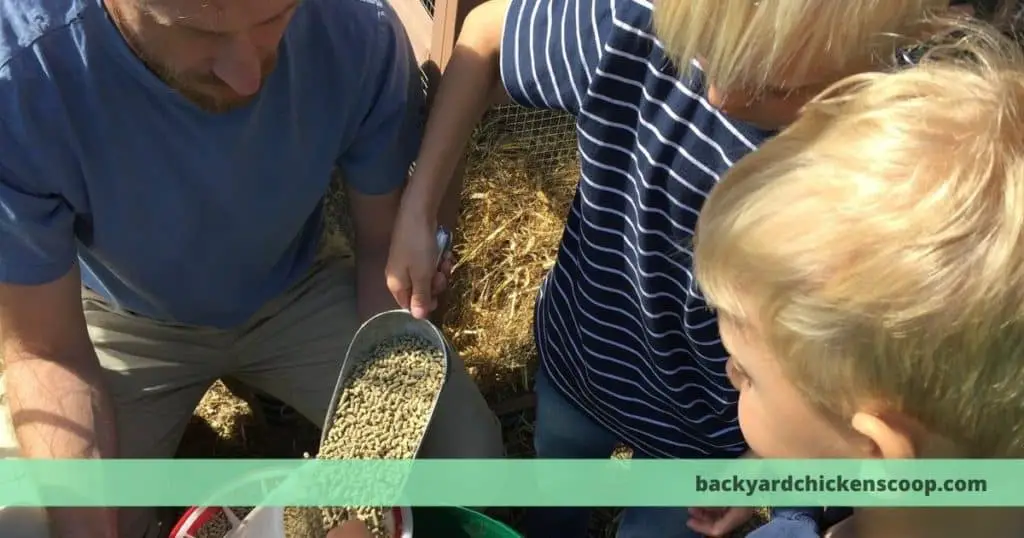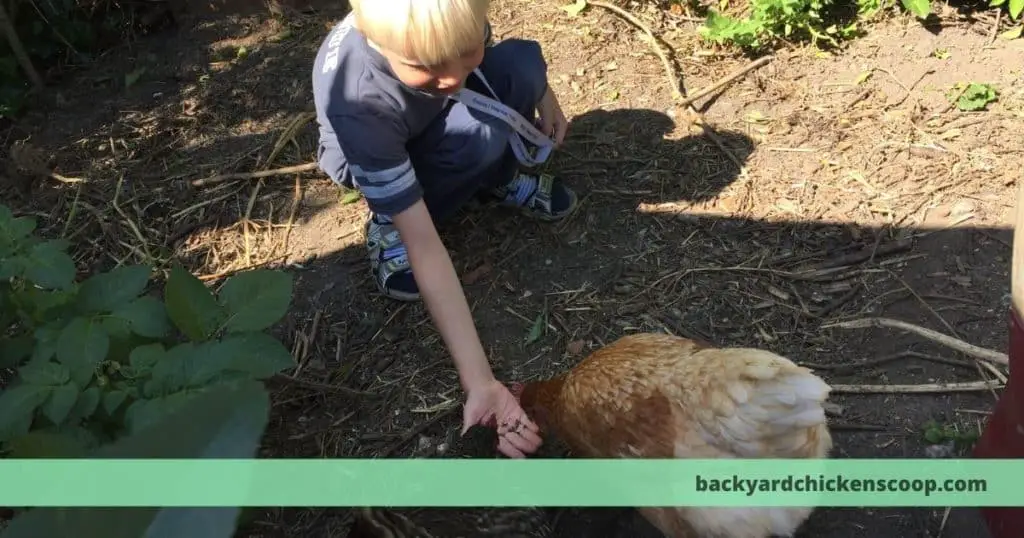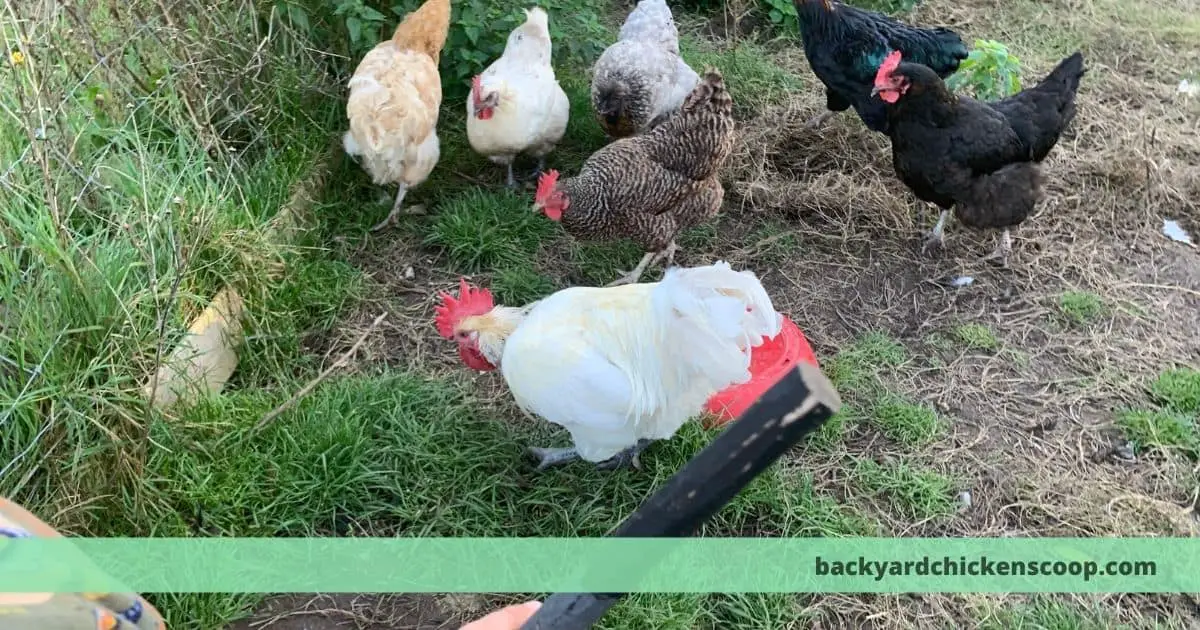Raising chickens at home can be lots of fun, getting fresh eggs daily can be a real bonus, and chickens can make pretty fun pets. But there are some things to think about. What do you need to be able to safely raise chickens? What do they need to be the happiest, healthiest, chickens they can be? This article gets into all of that and more!
What do I need to start raising chickens in my backyard?
If this is your first time raising chickens in your backyard, there are some things you may not know or maybe unsure about. Here are all the must-have things you will need.
1. The right coop
What makes it the right coop for you? Mostly how many chickens do you want to have. The more chickens you have, the bigger your coop will need to be.
But keep in mind, a coop that is too big will cause your chickens to get cold and make them distressed. It is better to have a small snug coop, where your chickens will be closer together for warmth and safety.
2. An enclosed pen
Your pen around your coop should be fully enclosed. Even if you plan to let the chickens out every morning, and put them to bed every night. If your pen is not fully enclosed all the way around, predators can make their way into your chicken’s coop.
Any chicken owner will tell you, nothing is worse than finding a fox that has been amongst your hens. Even if some of the hens manage to survive the ordeal, they can still die later on from shock or depression.
Yes, chickens can get depression too.
Safety Precautions
Having an enclosed pen is not the only thing you can do. Being aware of all the predators that may happen to also live in your surrounding area can help you anticipate and prepare for other problems. Rats, for example, live everywhere. They will also attack your new chickens, given the chance.
To prepare against this you can set traps around the backyard at night to catch some of these predators. Humane traps are available if you plan to take them and release them elsewhere. Make sure you release them at least a few miles away, or they will easily find their way back home.
3. A Nesting box
If you are planning on collecting their eggs, you NEED a nesting box. Most coops will come with a nesting box attached. When picking your nesting box, or more precisely how many nesting boxes, it is good to stick to the rule of 3.
3 hens per nesting box are the best amount, any less is fine, but any more and there is not enough room they may start smashing other hens eggs to make room for their own.
The Rule Of Three: 3 hens per nesting box is the ideal. Less is fine, but this will give them less room, and they may start smashing other hens eggs
Why is a nesting box necessary? Because otherwise, chickens will lay their eggs anywhere. They will find somewhere safe and hidden away to lay their eggs, with the intention of no predators finding them.
This means you won’t find them either. Even if you don’t plan to collect and eat/sell the eggs, this is a problem. If those eggs are unfertilized, they will never hatch.
This means eventually you will be playing hide and seek with who knows how many rotten eggs all around your yard. This is something you probably want to avoid.
4. Water
Like all animals, chickens need water. A fully grown adult hen will drink about 1 cup of water a day. The best way to make sure that your new chickens get enough water is to put out 3 strategically placed water bowls, or specific water feeders around their pen.
Make sure you fill up their bowls ideally every day, or at least every few days. Chickens are clumsy they will kick their bowls over, and you might not realize for days otherwise. It is best to check daily.

5. Food
Chickens also need food. Shock! Chickens will peck around during the day for little seeds, bugs, and worms. But they still need proper chicken feed too. Depending on how old they are can change the feed.
Adult chickens can eat grains or specialist chicken layer pellets. These pellets are extra nutritious and are good for helping your chickens lay better eggs. Without proper nutrition, your chicken may not lay eggs and if they do they can be very fragile and very small.

You’ll also need some chickens!
This might come as a shock to you, but the biggest thing you will need though is the chickens themself! Picking your new chickens is one of the most fun parts. There are some things to think about, such as do you want chicks or hens?
It is up to you whether you want to raise chicks to hens or if you want to buy some hens themself. Each has its pros and cons, mostly to do with cost and time. If this is your first time owning chickens, it’s best to get them as adults.
Another consideration that needs to be made, is how many? Chickens are social animals and do better when in bigger groups. If you are only looking for a small group the best bet is ATLEAST two, but three to four is a good number. If you can’t decide, maybe have one chicken per family member.
Love and attention
Chickens need love and attention like any pet, they can develop a close bond with you over the years you own them. These bonds are not only fun for you and your chicken, but they also lead to better eggs.
Happy chickens lay bigger and better eggs. Just like healthy chickens lay bigger and better eggs.

If you spend lots of time with your chickens, they will become very attached to you. This is even more prominent in chickens raised from chicks to hens. If you have your hens from as young as possible they will allow you to pick them up and will come to you for cuddles.
This can still happen if you get them from adults, but they are more likely to just follow you around and peck at your shoes than try to sit in your lap.
Conclusion
Having chickens in your yard can be lots of fun, and provide you with lots of delicious eggs, but you need to make sure you are prepared. If you make sure you have everything on this list, you will be well on your way to raising the happiest and healthiest chickens you can!


